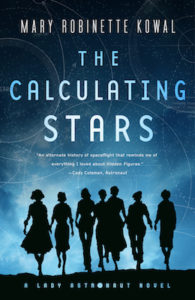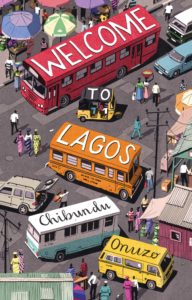In near-future London, Charlie Aaron volunteers for a drug trial to help make ends meet. Nothing seems to happen, but several months later, she develops a crippling narcolepsy that sees her fired from her desk job, unable to make the anonymous ASMR videos that are her side gig, and thus evicted from the cupboard under the stairs she’d been living in. Fortunately, the wealthy and elderly O needs a roommate to help with errands and such, and she’s more than happy to accommodate Charlie’s illness. When Charlie discovers that, in addition to her narcolepsy, she seems to have developed the ability to walk into other people’s dreams, O is also happy to help Charlie monetize her new-found skills as a dream “therapist”, tho Charlie’s best friend, Shandy, will eventually suggest the much cooler and more marketable title “dreamhacker”.
At first, it’s a New-Age-y gig, with a clientele of the relatively well-to-do who prefer to rely on alternative therapies to deal with their anxieties. O thinks they should expand into more lucrative markets, but after Charlie has an unpleasant encounter with a lawyer wanting a brutally perverse sex dream session, she’s understandably wary. Still, she needs money, so when her ex-boyfriend messages asking for her help treating the dreams of his new girlfriend, she doesn’t have the financial security to say no. Fighting her continuing attraction to Antonio is made worse by the fact that Melodie is a lovely person, a talented musician who’s been having troubling dreams that are preventing her from getting any rest. Her fatigue is showing in her performances, and nothing else seems to be helping.
It’s in Melodie’s dreams that Charlie first encounters a sinister figure known as The Creeper, whom Charlie pursues through a Dream City that mirrors the London she knows. But when Charlie wakes to discover that Melodie has sleepwalked off the roof of the building to her death, she begins to believe that The Creeper wasn’t the embodiment of Melodie’s anxieties but a person just like Charlie, only with murderous intent. With the Dream Police taking an interest in the case and a shadowy Agency getting involved, Charlie’s world is turned upside down as people continue to die. And if she doesn’t stop The Creeper, Charlie herself could become the next victim.
So that’s sort of the premise of the book, but I’m leaving out the layers of technology that permeate the London of 2027 and enable the proceedings, in clever if not necessarily wholly realistic extrapolation of modern tech. Most people have headwear that allows them to see the Augmented Reality primarily pushed by the social media enterprise Big Sky, of which the Sweet Dreams sleep-enhancing platform of the title is an extension. The sci-fi bits are just plausible and vague enough that they work for the story, with one huge exception: why Melodie. There’s a lot of corporate and tech intrigue as Charlie races to unmask The Creeper, and it’s quite absorbing and twisty, but I never really understood why Melodie was targeted to die, if Charlie hadn’t even known about her existence till after Antonio messaged. I did however very much enjoy how Tricia Sullivan built all the characters, from doomed, lovely Melodie to neurotic and lovely in an entirely different way Charlie (with a special shout-out to Lorraine and Stack.) I really enjoyed Antonio and Roman, as well, who are about as far apart on the romance hero spectrum as you can get. The interplay between O and Daphne was also excellent, tho I really didn’t understand the Dream City ending with Charlie and Meera and the masks. I feel like Ms Sullivan was trying to use the scene, if not the entire book, as a metaphor for getting people offline and enjoying the real world but that scene in particular felt more attuned to the wonky logic of the dream realm than to actual reality.
That said, I wouldn’t mind going on more adventures with Charlie, who is weirdly relatable even as she’s a complete hot mess. She’s kind and more trusting than she thinks she is, and has an ethical code I can absolutely understand. This is a decent near-future sci-fi techno-thriller with a cast quite different than you’d expect from same, that I feel would make a great starting point for a series. Bonus points for multiple Arsenal references, which were greatly enjoyed on my weekend in North Carolina, watching them play in the ICC.








